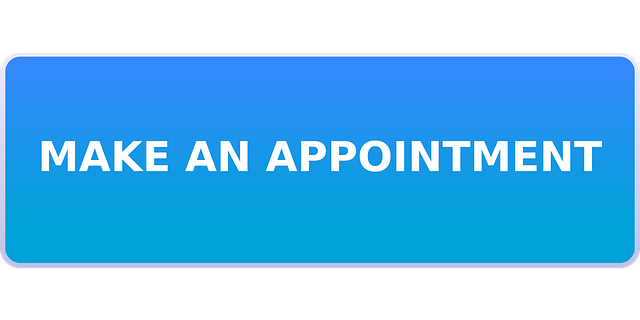
Does your B2B company have an appointment setting strategy? Appointment setting is the process of soliciting appointments from prospective buyers. Sales reps or dedicated "appointment setters" can reach out to prospective buyers to see if they are interested in discussing a deal at a later date. If a prospective buyer is interested in a deal, he or she may agree to an appointment. To determine whether your B2B company needs an appointment setting strategy, you should look for the following signs.
#1) Long Sales Cycle
The length of your B2B company's sales cycle may indicate a need for an appointment setting strategy. If your B2B company has a long sales cycle, chances are it will benefit from an appointment setting strategy. Sales cycles represent the buying process. A sales cycle begins when you initially identify a prospective buyer, and it ends when you convince the prospective buyer to make a purchase. A long sales cycle means your B2B company takes a long time to convert leads into buyers.
According to Klipfolio, the average sales cycle in the B2B industry is over four months. Some B2B companies experience longer sales cycles. Fortunately, an appointment setting strategy can shorten your B2B company's sales cycle. It will allow you to move prospective buyers through your B2B company's sales funnel more quickly. And by closing deals in less time, you'll achieve a shorter sales cycle.
#2) Selling Services
If your B2B company sells services -- as opposed to products -- you may want to develop an appointment setting strategy for it. All B2B companies target other businesses. B2B companies target businesses, whereas B2C companies target consumers. While some B2B companies sell products to businesses, though, others sell services to businesses.
Appointment setting isn't limited to B2B companies that sell services; there are plenty of product-focused B2B companies that also have an appointment setting strategy. With that said, you may want to develop an appointment setting strategy if your B2B company sells services. Prospective buyers may have questions about the services. Before purchasing one of your B2B company's services, a prospective buyer may want to know what the service entitles and when it will be finished. During the appointment, you can answer these questions and address any other concerns the prospective buyer has.
#3) Low Buyer Retention Rate
A low buyer retention rate is a telltale sign that your B2B company needs an appointment setting strategy. Buyer retention rate represents the percentage of buyers whom your B2B company retains during a given period. If your B2B company acquired 1,000 buyers last year, 600 of whom parted ways with your B2B company by the end of the year, your buyer retention rate would be 40%.
A low buyer retention rate means buyers are leaving your B2B company. Rather than staying and continuing to buy your B2B company's products or services, they are leaving in favor of your competitors. With an appointment setting strategy, you can build stronger relationships with buyers that encourage them to stay.
#4) Getting Stuck at Gatekeepers
If you're constantly getting stuck at gatekeepers when attempting to sell your B2B company's products or services, you may want to develop an appointment setting strategy. Gatekeepers are inevitable in the B2B industry. They consist of receptionists, personal assistants, interns and other workers who hold the metaphorical keys to higher-level professionals at a given business.
Gatekeepers typically don't have the authority to purchase products or services on behalf of their businesses. Rather, they can only route calls to higher-level professionals. To sell a product or service, you'll need to convince the gatekeeper to route your call to a higher-level professional. You should consider developing an appointment setting strategy if you're unable to get past the gatekeepers. With an appointment setting strategy, you can ask gatekeepers to book an appointment for the higher-level professionals at their businesses.
#5) Rejections When Upselling
Rejection when upselling is another sign that your B2B company needs an appointment setting strategy. As you may know, upselling is a sales tactic that involves pitching upgrades. If a buyer is interested in buying a product, for example, you can pitch a higher-priced, upgraded version of the product.
Some buyers will reject your offer for an upgraded version. If you get too many of these rejections, you may want to develop an appointment setting strategy. During appointments with buyers, you can convey a unique value proposition for the upgraded version. Buyers will recognize the value of the upgraded version, so they'll feel more confident purchasing it rather than the original product.
#6) Selling Expensive Products or Services
If your B2B company sells expensive products or services, it may need an appointment setting strategy. Buyers are less likely to spontaneously purchase expensive products or services. After all, they want to know that their money is being wisely spent, so they'll perform due diligence on expensive products or services before purchasing them.
An appointment setting strategy will give buyers the opportunity to learn more about the expensive products or services that your B2B company sells. Buyers can inquire about the expensive products or services during the appointment. After familiarizing themselves with the expensive products or services, they may purchase them. So, if your B2B company sells expensive products or services, it probably needs an appointment setting strategy.
#7) Low Conversion Rate
What's your B2B company's average conversion rate when selling products or services? You can use this metric to determine whether your B2B company needs an appointment setting strategy. A low conversion rate means your B2B company can benefit from an appointment setting strategy. It indicates that your B2B company is struggling to convert prospective buyers into actual buyers.
You can improve your B2B company's average conversion rate by leveraging an appointment setting strategy. Many factors affect conversion rates. Regardless, you can't expect to convert prospective buyers unless you interact with them. Appointments offer the perfect opportunity for these interactions. You can talk to prospective buyers while convincing them to make a purchase, in which case your B2B company's average conversion rate will increase.
Summary
Setting appointments is a challenge. Sometimes you need a little help to keep your high producing sales reps busy. Take a moment to learn about SalesLeads' Prospecting Services. It may be the answer you're looking for.
What to learn more? Get in Touch
Latest Posts
-
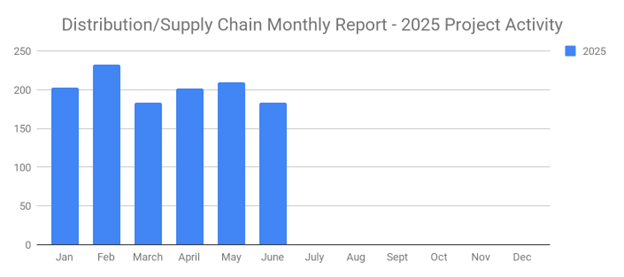
June's New Distribution and Supply Chain Planned Projects Return to March’s 183 Confirmed Figure
-
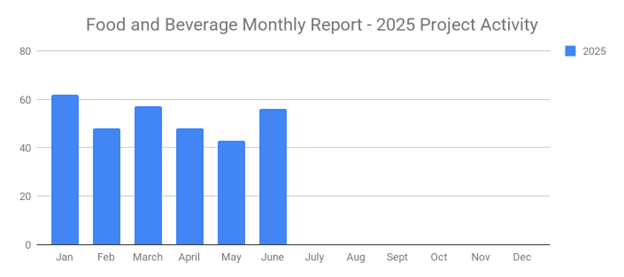
Food and Beverage Rebounds with 56 New Planned Projects Igniting Growth After Decline
-
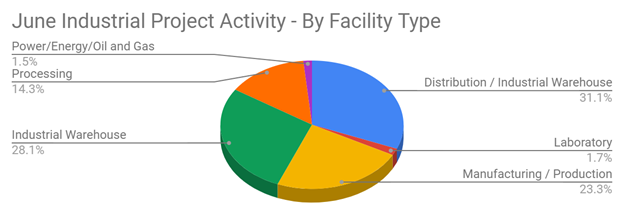
June 2025’s New Industrial Construction Projects Grew 7% Month-Over-Month
-
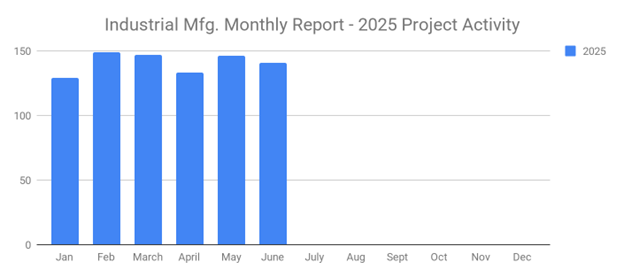
Q2 Industrial Manufacturing Soars 31% for Planned Projects Over $100M; June Planned Industrial Projects Hit 141

